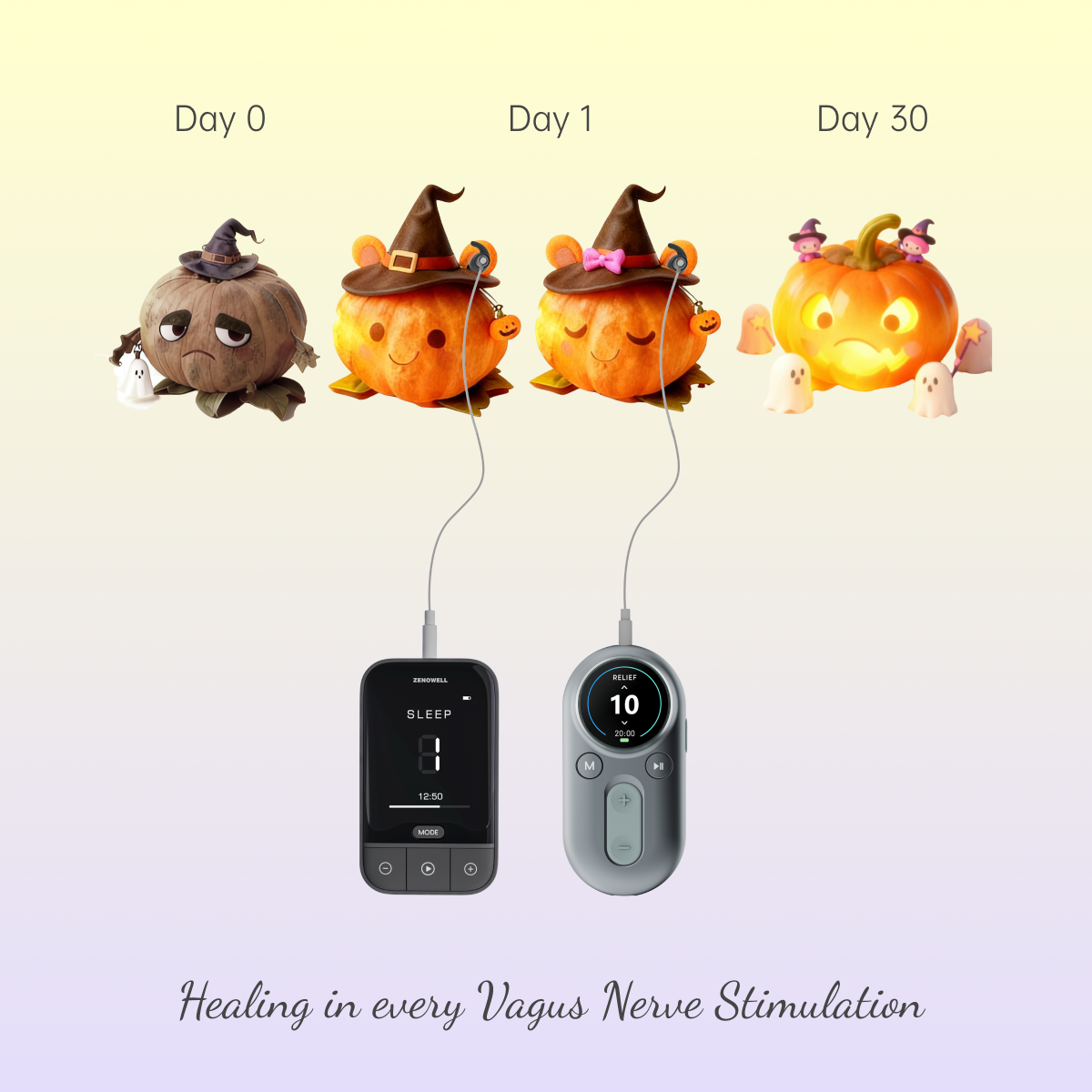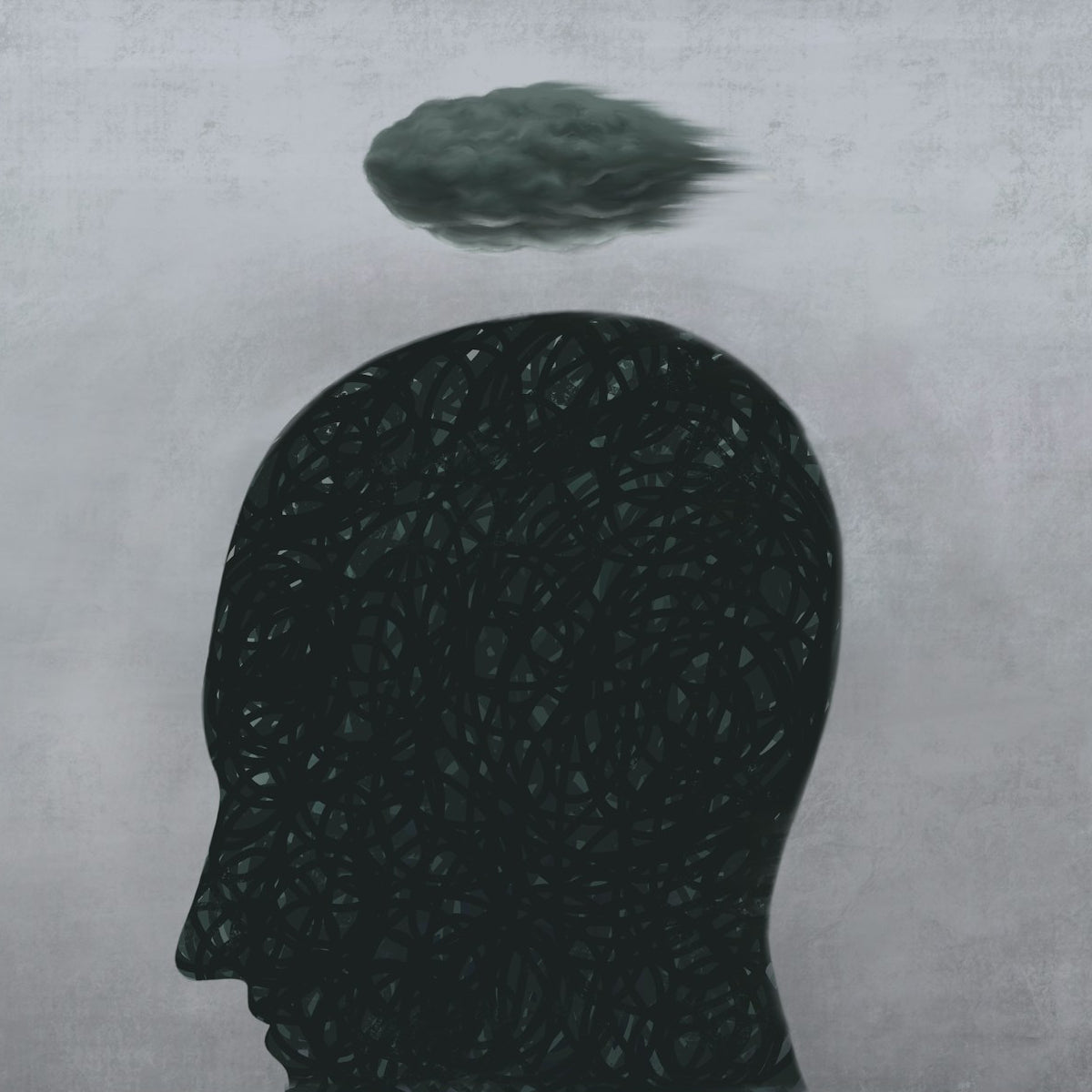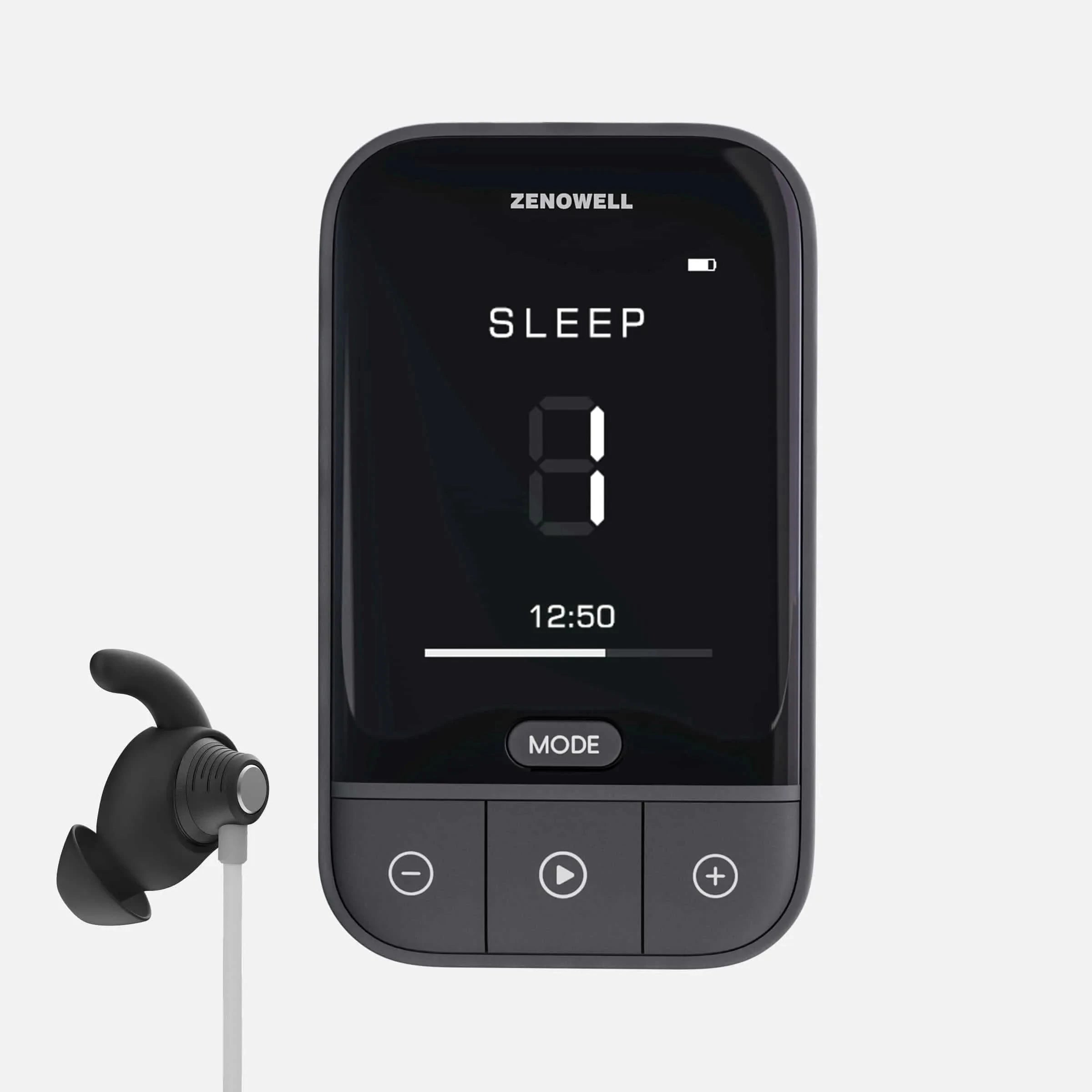Rebalancing during menopause: How ear-based vagus nerve stimulation (taVNS) can help
Menopause is not a breakdown—it's a biological transition. Yet for many women, this transition comes with a range of unexpected and disruptive symptoms: sleepless nights, emotional instability, chronic fatigue, migraines, and a general feeling of being “off.”
What if there was a way to gently support your body and nervous system through this shift—without drugs or invasive procedures?
Emerging research suggests that transcutaneous auricular vagus nerve stimulation (taVNS) — a non-invasive technique that stimulates the vagus nerve through the ear — may offer powerful relief for a range of menopause-related symptoms by helping restore balance to the autonomic nervous system.
The Menopause-Autonomic Nervous System Connection
As estrogen levels decline during menopause, the body's autonomic nervous system (ANS) often shifts out of balance. The sympathetic branch (responsible for “fight or flight”) becomes dominant, while the parasympathetic branch (the body’s “rest and digest” mode) weakens.
This imbalance can contribute to:
-
Sleep difficulties and insomnia
-
Anxiety, irritability, and depression
-
Migraines and tension headaches
-
Fatigue and brain fog
-
Palpitations, hot flashes, and digestive issues
By gently stimulating the auricular branch of the vagus nerve through the ear, taVNS can help restore autonomic balance, reducing sympathetic overdrive and enhancing parasympathetic tone.
What the Science Says: Two Key Studies
✅ Study 1: Auricular Acupressure in Postmenopausal Women with Insomnia (Kung et al., Menopause, 2011)*
A clinical study conducted at Taipei Veterans General Hospital followed 45 postmenopausal women (average age: 56.2 years) who had experienced chronic insomnia for over 4 years. Each participant received nightly auricular acupressure on five ear points for 4 weeks.
Results:
-
Significantly improved sleep duration and efficiency
-
Shorter time to fall asleep
-
Heart rate variability (HRV) analysis showed increased parasympathetic activity (high-frequency power) and reduced sympathetic dominance (normalized low-frequency power)
✨ Women who reported the greatest improvements in sleep also showed the most balanced shifts in autonomic function.
✅ Study 2: Daily taVNS in Adults Over 55 (Bretherton et al., AGING, 2019)*
In a UK-based study, 94 healthy adults aged 55+ participated in three trials examining the impact of taVNS. In the third arm of the study, 29 participants used taVNS daily for 15 minutes over two weeks, targeting the tragus area of the ear.
Results:
-
Increased vagal tone and baroreflex sensitivity (a marker of cardiovascular resilience)
-
Improved mood: reduced tension, depression, and confusion; increased energy
-
Enhanced sleep quality: easier to fall asleep, better sleep, and easier waking
-
Participants with higher stress and sympathetic dominance at baseline saw the greatest improvements
How taVNS Supports Menopause-Related Symptoms
💤 Sleep: Enhances GABA activity, boosts the parasympathetic nervous system, and regulate the default mode network for deeper, faster sleep
🧠 Mood: Modulates serotonin and limbic brain activity to stabilize emotional reactivity
💥 Migraines & pain: Reduces neuroinflammation and overactivation of pain pathways
❤️ Heart & hot flashes: Balances HRV and stabilizes cardiovascular rhythms
🌿 Gut and energy: Improves gut-brain communication through the activation of NTS activity and supports metabolic function
A Safe, Non-Invasive Approach to Healthy Aging
An increasing body of research supports the efficacy of taVNS in managing symptoms commonly experienced during menopause. Its safety, ease of use, and growing clinical validation make it a compelling option for women looking for natural, neuromodulatory support during this life stage.
Menopause is a transition—not a breakdown. With ear-based vagus nerve stimulation, your body can relearn calm, rebuild resilience, and restore harmony—one gentle signal at a time.
Interested in Trying taVNS?
Whether it's you, your mother, or your partner experiencing poor sleep, heightened anxiety, or chronic fatigue during menopause, taVNS may offer a non-pharmaceutical path to feeling better. If you're curious to learn more or explore available options, feel free to reach out to us at jane@zenowell.ai or visit our https://zenowell.ai/collections/all-products.
References
- Drogos L L. Autonomic Nervous System Activity and Menopausal Symptoms[D]. University of Illinois at Chicago, 2014.
- Kung YY et al. The relationship of subjective sleep quality and cardiac autonomic nervous system in postmenopausal women with insomnia under auricular acupressure. Menopause. 2011; 18(6):638–645.
-
Bretherton B et al. Effects of transcutaneous vagus nerve stimulation in individuals aged 55 years or above. AGING. 2019; 11(14):4836–4849.
















